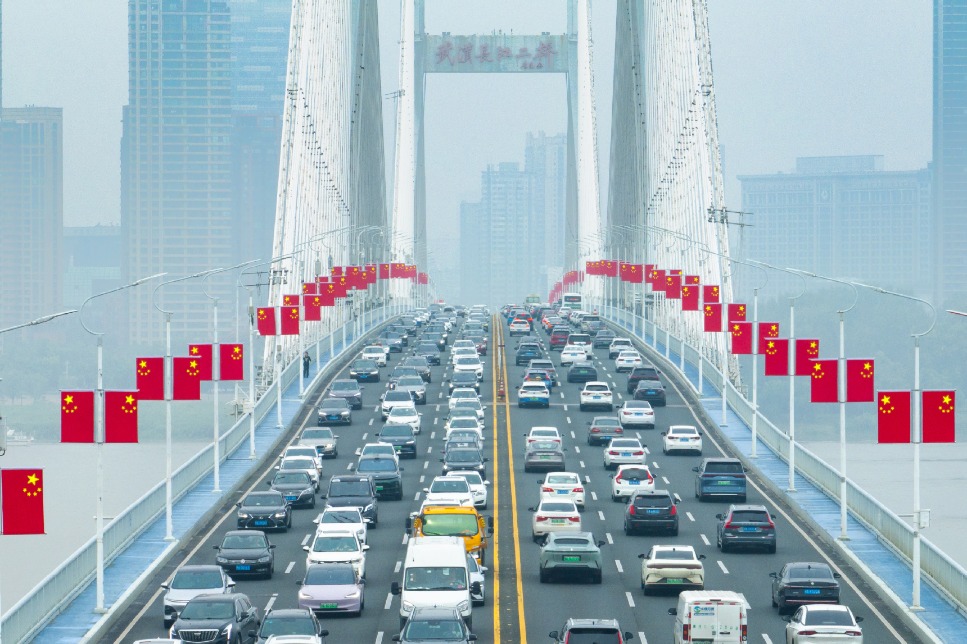Anti-fascist narratives shouldn't be monopolized


We commemorate the victory in the World Anti-Fascist War (World War II), which ended 80 years ago, in various ways. Yet a couple of deeper questions deserve our attention: Who are the people who have written, or are still writing, the history of that war and victory? Who have defined, or are still defining, our collective memory?
In reality, the victory is not attributed to the countries that sacrificed the most in that war. Over the past 80 years, the United States, particularly Hollywood, has seized control of the global cultural narrative. On the silver screen, Hollywood portrays the US as the embodiment of justice. As a result, its values have become a global consensus, while the other countries that made outstanding contributions to the victory against fascism have been relegated to a position of "silence" or "acquiescence". This unequal and unfair cultural narrative warrants our reflection as we commemorate the victory over fascism today.
World War II was a just war fought collectively by people around the world. China's contribution to that victory was 14 years of resistance, with 35 million military and civilian casualties, to prevent the expansion of Japanese fascism in Asia. French soldiers and civilians, on their part, upheld their independence in the tenacious defense at Dunkirk and the Resistance during the Nazi occupation of France. Yet in many mainstream Hollywood films, victory in World War II is often reduced to a singular narrative of "D-Day", or "American heroes saving the world". This focus on the Anglo-American heroics has marginalized the memories of other battlefields and countries.
Hollywood's narrative approach is not merely artistic creation. It has, more or less, shaped the collective global impression of "history" through plots, characters, values and visuals. This model of "cultural colonization" through the visual media has even influenced the way many countries perceive their own histories, a trend that peaked during the Cold War and continues to this day.
Against this backdrop, China and France, despite having different political systems and cultural traditions, have shown remarkable resistance in challenging Hollywood's cultural hegemony. France is one of the few countries in the world to adhere to a policy of "cultural exception". Since the 1990s, France has maintained that cultural products cannot be treated as ordinary commodities, while opposing the inclusion of films and TV series under the World Trade Organization's free trade framework, which reflects the country's love for its language, history and artistic traditions, as well as its opposition to the notion that "cultural globalization equals Americanization".
China, on the other hand, defends its cultural sovereignty in a more systematic manner. From developing its domestic film and television industry to strengthening cultural oversight, and in recent years, promoting cultural cooperation under the Belt and Road Initiative framework, China has increasingly demonstrated its strategic goal of "telling China's stories well" to the world. Its goal is to not only safeguard or project China's national image but also resist cultural suppression.
China and France both defend cultural sovereignty and diversity, laying the foundation of bilateral cooperation. Indeed, in recent years, the two countries have engaged in various cultural collaborations in areas such as co-production of films, academic exchanges and museum exhibitions, reflecting mutual respect and trust for each other's cultural independence.
During the World Anti-Fascist War, China endured immense suffering. Likewise, France sacrificed countless lives during the Resistance. These sacrifices are undeniable historical facts and should serve to reconstruct the cultural discourse today. Also, they should form a solid moral foundation for China and France to exhort cultural respect on the global stage. In the process of rebuilding the global cultural order, remembering and honoring these sacrifices is essential to ensure historical justice and move toward a multipolar cultural future.
As people worldwide gain in national confidence and digital communication methods diversify, opportunities to challenge cultural monopolies and hegemony are emerging. In this transformation, China and France should play pivotal roles.
For example, they could collaborate on alternative, historically authentic narrative projects, and jointly or independently make films and TV programs with greater historical depth and cultural tension, showcasing different values and aesthetics to the world. The two sides could also foster platforms for cultural exchanges, enabling youths to form networks for enhancing cross-cultural understanding. And as active proponents of the United Nations Convention on the Protection and Promotion of the Diversity of Cultural Expressions, China and France should work together to support cultural institutions in Africa, Latin America and Asia, breaking the monopolies on colonial cultural output of the hegemonic media.
To be sure, cultural independence does not mean isolation; instead, it means opposing a single party's control over the cultural narrative, and striving to ensure the coexistence of diverse voices.
Eighty years ago, the world united to defeat fascism. Today, we must remain vigilant against cultural hegemony masquerading as globalization. Under the present historical conditions, as nations with rich and long cultural traditions, China and France have the responsibility of proposing cultural narratives based on historical facts, transcending hegemonic logic and jointly promoting a truly multipolar, mutually respectful and harmonious culture.
We commemorate the victory in the World Anti-Fascist War to avoid repeating the history shaped by others. And we rebuild to amplify voices that should be heard, in order to create new ways of narrating history to the world and pave new paths for collaboration and cooperation.
The author is an assistant professor at Istec Business School, Paris. The views don't necessarily reflect those of China Daily.
If you have a specific expertise, or would like to share your thought about our stories, then send us your writings at opinion@chinadaily.com.cn, and comment@chinadaily.com.cn.


































